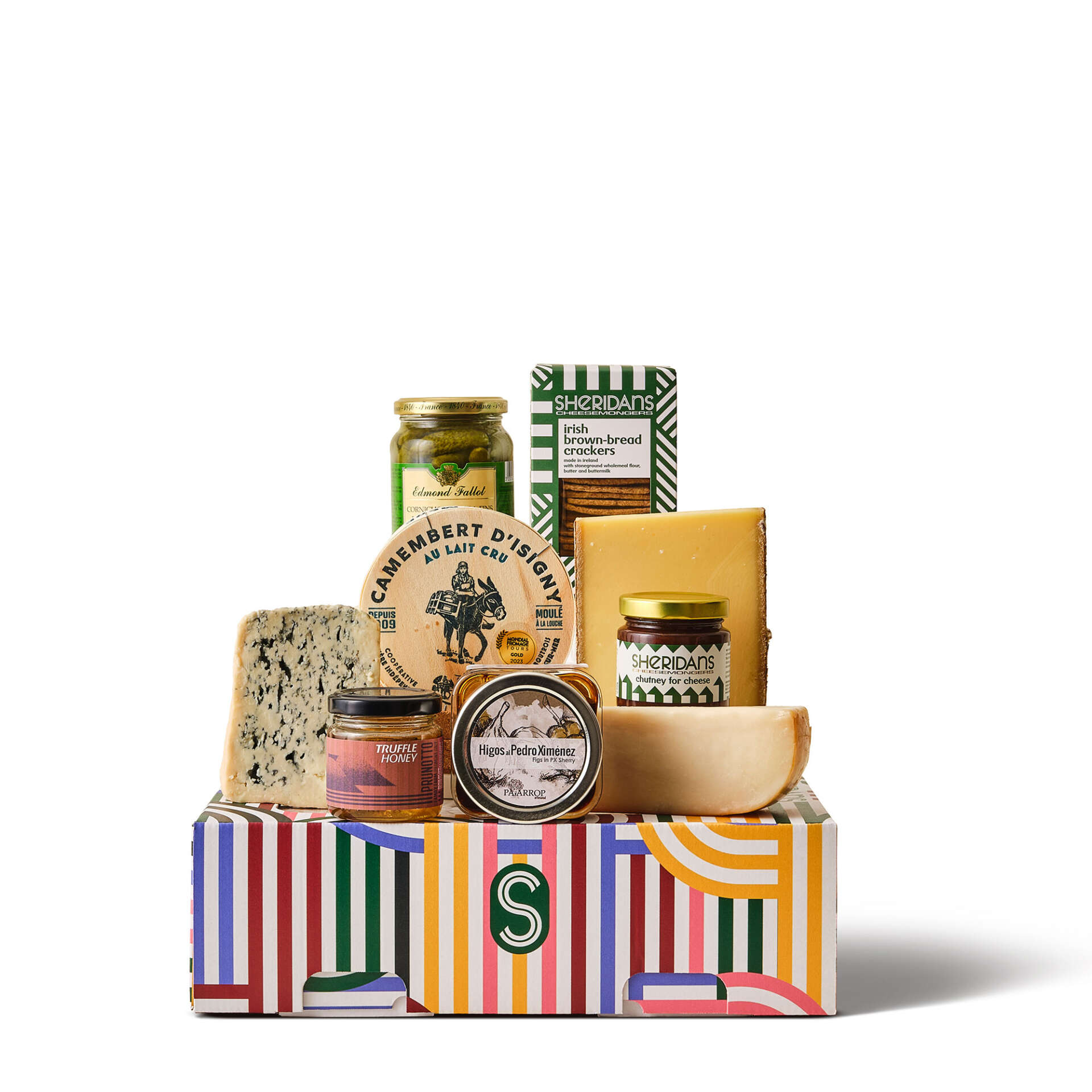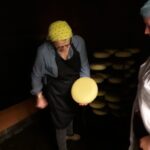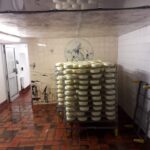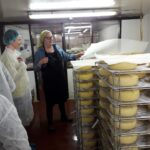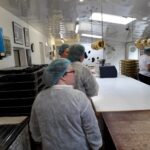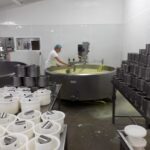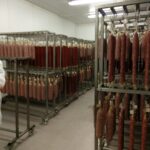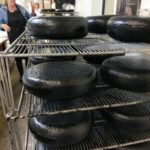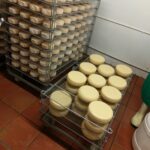Sheridans visit with Gubbeen

The Wednesday morning was crisp and clear, and at times a light drizzle fell. It was certainly the kind of weather that reminds one that they are about to embark on a journey within the hidden wonders of West Cork. The Sheridans Cork team had not met each other yet, however, new relationships and a team spirit came about because of this journey. As we caught up on coffees and introduced ourselves to one another, it was time to hit the road and break the ice.
Leaving the smooth urban roads and arriving onto windy country paths led to conversations about what makes Cork truly stand out. Whether it was our discussion on English, German and Dutch blow ins who have established a bohemian essence to the region, the spectacular landscape, experiences that we had of the area, the food culture which is so widely respected and so on. Of course there is a reason why Sheridans has come to the rebellious south.
When we arrived into the seaside metropolis of Schull, Google Maps became a friend in need as we scratched our heads as where to find the destination of the day; Gubbeen Farm.
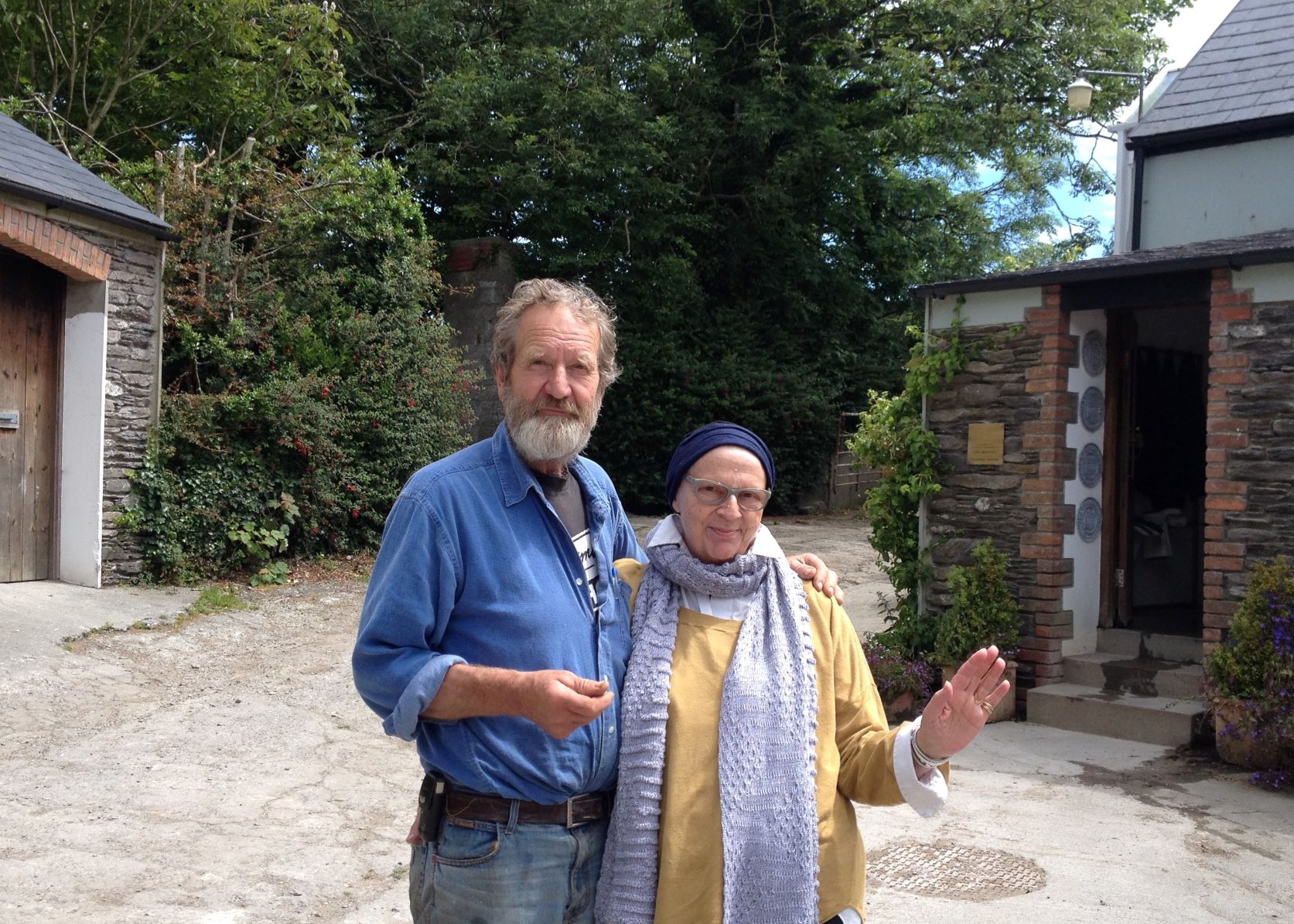
A sincere welcome can be felt right through your bones as you arrive into Gubbeen. We were due to visit the cheese making department, the meat processing workshop, and the biodynamic garden. Firstly, Giana Ferguson welcomed our group with bubbly enthusiasm. She took us to the cheese making neck of the Gubbeen woods. A small workshop with a lot of attitude and dedicated workers who seemed very happy to see curious faces step into their zone. We were examining cheese molds; to which Giana said when holding one: ‘This was this mornings milk. Tom was up at six this morning milking the herd.’ Incredible. The cheese making department is based on a logical tunnel which sees the milk being churned firsthand, put to bed into molds, and then the next stage being the maturing stage and the smoking section. Once it reaches the office, each cheese is waxed and wrapped up by a bunch of bubbly ladies.
Fingal Ferguson, the life and soul of the party, loves what he does. He doesn’t need a sheet of paper to explain of the workings and philosophy of the Gubbeen meat factory. Loud rock music plays all day long. Men are at work. Chorizos and salamis are being churned out of machines like a slap stick cartoon. Fragments of the animal which are used for bacon, ham for roasting and so on hang like three dimensional sculptures. Spices for the deli meats are taken into careful consideration as if they are for a school science experiment. Machines for smoking and preservation work like clockwork. Orders for specialty food stores and restaurants are taken care of in an office, ready to start their journey from farm to fork.
The final verse of the song of our journey ended in the garden. Ran by Fingals sister Clovis, a stupendous view of Crewe Bay can be seen from this section of the farm. As it was misty we could only see fragments of this coastal inlet. The garden itself is utterly delightful. An array of colourful flowers are growing around herbs and vegetables. A smart way to attract bees in fact. Fingal at one point made a joke about the difference between himself and his sister in terms of growing things from the soil: ‘My sister makes a plant come alive. Me on the other hand? I kill it! Merely because I forget to water them.’ Humor is common place in Gubbeen. Not much different to the Cork team at Sheridans.
He also explained about how his father Tom Ferguson plants potatoes in a certain point every Spring in the garden and how it means the world to him. A visit to Gubbeen is an education in itself. The willingness and dedication of Fingal and his family to
show us why and what they do. As Gubbeen regularly give tours to the public there is an understanding of how when you are talking to a group of people from all walks of life, you make it as though they are the only group in the world to be given a tour. We as a group were lucky to experience this and it made us more aware of what we work with and what we are selling to the public. There are moments when it could be mistaken for an organic farm in Bordeaux, Bologna or the Basque Country yet it’s a smart agricultural enterprise in the middle of rural Ireland.
Special thanks to Constance McKenna for the lovely text.




